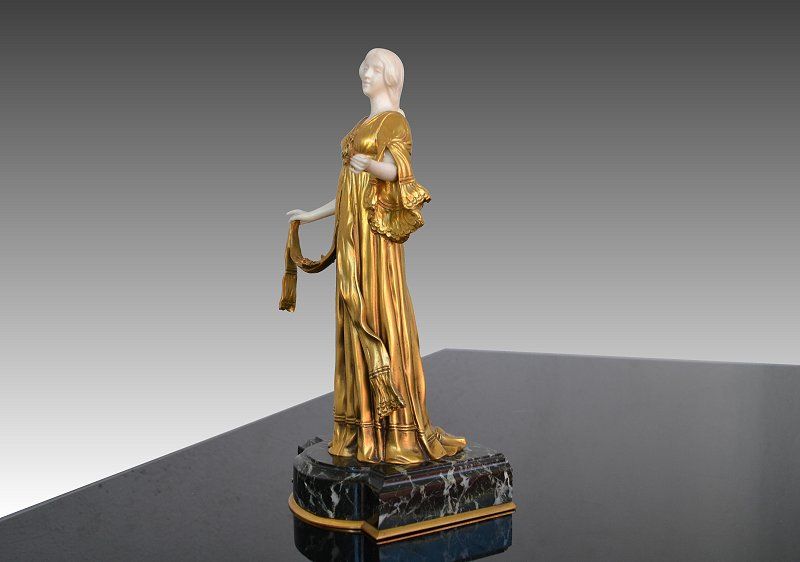
chryselephantine [kris-el-uh-fan-tin, -tahyn] ExamplesWord Origin adjective
- made of or overlaid with gold and ivory, as certain objects made in ancient Greece.
Origin of chryselephantine 1820–30; Greek chrȳselephántinos, equivalent to chrȳs- chrys- + elephántinos (elephant-, stem of eléphās elephant, ivory + -inos -ine1 Examples from the Web for chryselephantine Historical Examples of chryselephantine
Their hair is short and curls at the back of their heads like the hair of the chryselephantine Hermes.
Hilda Doolittle
The great statue of Athene by Phidias was of this “Chryselephantine” work.
The Expositor’s Bible: The First Book of Kings
F. W. Farrar
The chryselephantine statue of Zeus at Olympia was his work.
The Works of Lucian of Samosata, v. 4
Lucian of Samosata
The cella or naos was built to enshrine the chryselephantine statue of Athena by Pheidias.
Encyclopaedia Britannica, 11th Edition, Volume 2, Slice 4
Various
Chryselephantine, kris-el-e-fan′tin, adj. noting the art of making statues jointly of gold and ivory.
Chambers’s Twentieth Century Dictionary (part 1 of 4: A-D)
Various
British Dictionary definitions for chryselephantine chryselephantine adjective
- (of ancient Greek statues) made of or overlaid with gold and ivory
Word Origin for chryselephantine C19: from Greek khruselephantinos, from khrusos gold + elephas ivory; see elephant Word Origin and History for chryselephantine adj.
“overlaid with gold and ivory,” 1816, probably via German, from Latinized form of Greek khryselephantinos, from khrysos “gold” (see chrysalis) + elephantinos “made of ivory,” from elephans (genitive elephantos) “elephant; ivory” (see elephant).
 Liberal Dictionary English Dictionary
Liberal Dictionary English Dictionary